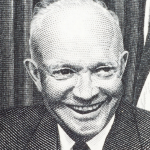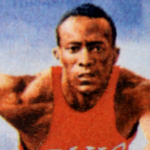
“The history of the world is but the biography of great men [and women].”
—Thomas Carlyle
Explore This Issue
ACEP Now: Vol 38 – No 05 – May 2019It’s not all about you. In fact, when it comes to achieving the summit of success, it’s often not about you at all. For most of us, understanding this can mean the difference between having a fulfilling professional life or feeling like a failure.
The Formula
 Carlyle’s statement above is thought-provoking but incomplete. Great women and men are indeed integral to history, but whether history made them or they made history is a matter for debate. The distinction between the top few percent of high performers and the top one-tenth of 1 percent about whom history books are written is often one of opportunity, not awesome intrinsic personal ability. Aware of this, we increase our chances for professional success while also enjoying our accomplishments and minimizing disappointment in our careers.
Carlyle’s statement above is thought-provoking but incomplete. Great women and men are indeed integral to history, but whether history made them or they made history is a matter for debate. The distinction between the top few percent of high performers and the top one-tenth of 1 percent about whom history books are written is often one of opportunity, not awesome intrinsic personal ability. Aware of this, we increase our chances for professional success while also enjoying our accomplishments and minimizing disappointment in our careers.
I enjoy studying U.S. presidential and ancient Roman history, particularly through biographies of those who have helped shape their times. Though these impactful people vary greatly from one another, common themes, nonetheless, unite them. Most were bright and/or talented. Most worked exceedingly hard to excel in their work. However, nearly all, not just most, are persons of historic interest because unique circumstances afforded them unique opportunities. Stated as a formula: historic achievement = ability + effort + opportunity.
 These three elements are neither universally possessed nor reliably attainable. Ability is most common, intense personal effort less so, and special opportunity is notably scarce in comparison to the others (see Figure 1). To reach historic levels of individual achievement in leadership or any endeavor, all three are required.
These three elements are neither universally possessed nor reliably attainable. Ability is most common, intense personal effort less so, and special opportunity is notably scarce in comparison to the others (see Figure 1). To reach historic levels of individual achievement in leadership or any endeavor, all three are required.
Three Essential Elements
First, some measure of innate ability is the necessary raw material of any exceptional leader. This being said, many people possess sufficient ability to excel in one or more areas of human endeavor. However, while most incapable people may never become transformational leaders, it is also true that many highly capable people never become exceptional leaders. In a relative sense, ability is essential, abundant, and insufficient. Ability requires two additional elements, each progressively less common, to produce exceptional performance.
The second essential element is effort. Deluded leaders believe their own awesome genius is the key to their success. Grounded leaders understand that the difference between very good and great is usually not intrinsic ability but effort. Hard, focused, sustained effort is essential to shape and polish innate ability to diamond-like brilliance. While there are exceptions, individuals whose performance is truly exceptional still must make an extraordinary effort. Olympic athletes, world-class musicians, high-achieving leaders, etc. frequently started their journeys young, pursued a singular activity with uncommonly intense focus, and sustained this concentrated effort over an unusually long period of time. Thomas Edison’s well-known remark memorably captures this sentiment: “Genius is 1 percent inspiration, 99 percent perspiration.”
 There remains a third essential element, both rare and subject at best to influence but seldom under our control. This third element is opportunity. Some might refer to this as fate, luck, or chance. Countless highly able and hard-working persons live out very productive, high-performing lives without reaching the pinnacle of achievement and prominence in their fields because they lacked opportunity. On this point, egotistic leaders go astray, whereas self-aware and grounded leaders recognize they have benefitted from uncommon opportunity(ies) and, at times, exhibit inspiring humility arising from sincere gratitude for their good fortune.
There remains a third essential element, both rare and subject at best to influence but seldom under our control. This third element is opportunity. Some might refer to this as fate, luck, or chance. Countless highly able and hard-working persons live out very productive, high-performing lives without reaching the pinnacle of achievement and prominence in their fields because they lacked opportunity. On this point, egotistic leaders go astray, whereas self-aware and grounded leaders recognize they have benefitted from uncommon opportunity(ies) and, at times, exhibit inspiring humility arising from sincere gratitude for their good fortune.
The Elements in Action
As an example, President Dwight Eisenhower was a young army officer during World War I, after which the U.S. military shrank dramatically in size, promotions were scarce, and careers stagnant. He served in the U.S. Army with distinction for decades, earning accolades from his superior officers but languishing at lower ranks for extended periods with little hope of promotion. Then, World War II changed everything, as the U.S. Army experienced its largest-ever expansion from fewer than 200,000 soldiers in 1939 to more than 8 million soldiers in 1945. This 40-fold growth exponentially increased the need for senior officers and provided previously stagnant but able and hard-working officers the opportunities they needed to achieve prominence on the global stage. Eisenhower, one of these men, served as Supreme Allied Commander in Europe, where he worked closely with the leading men of his age and was ultimately hailed as the man who defeated Hitler. He returned home such a widely acclaimed national hero and with such a rich network of affluent connections that it seemed to many a foregone conclusion he would become president. He is a prime example whose legacy as a person of history rather than a capable but forgotten soldier was made possible by unique opportunity.
How Does This Apply to Us?

FROM TOP: Dwight Eisenhower, Jackie Joyner-Kersee, Jesse Owens, and Marie Curie.
As emergency physicians, our academic and professional achievements are evidence of our ability. In large measure, we are intelligent, innovative, and emotionally intelligent. We should take satisfaction in the gifts of ability we have been given. If we seek rarified heights of professional accomplishment, we need to focus further to identify our unique personal abilities toward which to deploy still more effort to enhance our chances of exceptional achievement.
Emergency physicians are also no strangers to focused and sustained effort. Logging 11 years or more of post–high school education and enduring workweeks so intense that they are capped at 80 hours, we epitomize outsized effort applied to maximizing our inherent abilities. Emergency medicine is still a large field, so historic achievement requires further focus. Ultrasound, toxicology, cardiovascular disease, etc. offer paths to focused clinical excellence. Many of us possess talents in education, health policy, politics, executive management, etc. If we seek to truly excel, we must focus further, identify our differentiating abilities, and refine them through hard and sustained effort.
Even in possession of the above, we still require that essential third element: opportunity.
Opportunity and Choices
For those of you who believe you can change the world and think you are of historic potential, may the wind be at your back! Just remember, armed with all your genius, talent, beauty, and brawn, you will only get so far without the secret sauce of opportunity. Rarest of the three elements, the probability for opportunity can be optimized. It should also motivate us to reflect upon the values we hold, the examples we set, and how we choose to live our lives.
First, figure out in your own life where your unique talents overlap your passions and then commit to long, hard work to be the very best in this sliver of the universe. Beware: This will require forgoing other important parts of your life so that you can devote innumerable hours to the pursuit of excellence. Historic people often sacrifice a lot to be historic. They have been imprisoned, tortured, assassinated, impoverished, and mentally and physically unwell, among other challenges. However, great accomplishment often requires great sacrifice. If you desire graphic illustration of this, spend a weekend watching Harry Potter, The Lord of the Rings, The Hunger Games, etc. The glory of heroism frequently extracts a high cost. It’s costly, tedious, and uncertain, but if you want to reach the pinnacle, this intensity is generally required.
Second, grow your network of people both within your area of expertise and in areas directly adjacent to it. In doing this, be sincere, not a suck-up. Genuinely appreciate the company of these others and enjoy your shared interests on their own merits. At the end of the day, being a good person still matters, and over the long haul, it is a substantial asset to you and those with whom you associate. Uncommon opportunities frequently present themselves through these personal relationships. Since you will seldom accurately predict which single relationship will result in your special opportunity, nurturing a wide array of connections increases your odds.
Last but most important, if your opportunity to make history fails to materialize, remember that misery loves company and that you are in the company of 99.9 percent of all people! However, if you correctly identified an area in which you excel, worked diligently to be your best at it, and forged friendships with others who share your passion, you will have done well. If you step back from your ambitions to reflect on your journey, you may just find that, while books may not be written about you, you have nonetheless enjoyed a life worth living and positively impacted the lives of many others along the way.
 Dr. Stack is an adjunct professor at the University of Tennessee Haslam College of Business in Knoxville; an emergency physician at CHI St. Joseph East in Lexington, Kentucky; and past president of the American Medical Association.
Dr. Stack is an adjunct professor at the University of Tennessee Haslam College of Business in Knoxville; an emergency physician at CHI St. Joseph East in Lexington, Kentucky; and past president of the American Medical Association.
Pages: 1 2 3 4 | Multi-Page





One Response to “Want to Make History? You’ll Need This Formula for Success”
June 1, 2019
David GriffenVery good article. Thank you.
Opportunities are all around us. Perhaps not near the scope of leading the allied armies in Western Europe during WWII, but they are there none the less.
I really like the advise on networking: “Genuinely appreciate the company of these others…”. A key to networking is the same key to enjoying your patients; you have to like people.